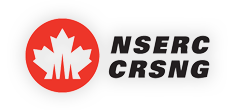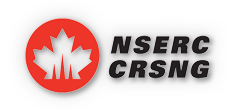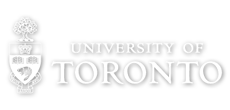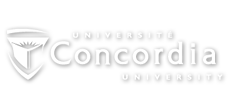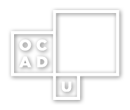
Graduate courses at York University
EECS
Computer Vision (CSE 5323)
This course will introduce the basic concepts in Computer Vision. Primarily a survey of current computational methods, we will begin by examining methods for measuring visual data (image-based operators, edge detection, feature extraction), and low-level processes for feature aggregation (optic flow, segmentation, correspondence). Finally, we will consider some issues in “high-level” vision systems.
Topics in Artificial Intelligence (CSE 5326)
This course will be an in-depth treatment of one or more specific topics within the field of Artificial Intelligence.
Introduction to Computer Graphics (CSE 5331)
This course provides an introduction to computer graphics. The first half will cover window systems, display hardware, graphical primitives, scan conversion, two and three dimensional transformations and the mathematics of planar geometric projection. This will provide the groundwork for thinking and working in three dimensions. The second half of the course will concentrate on raster algorithms and on understanding the problems and approaches required to generate realistic looking images. Some of the topics include visible surface algorithms, modelling, shading, anti-aliasing, texture mapping, ray tracing and radiosity.
Human-Computer Interaction (CSE 5351A)
This course introduces the concepts and technology necessary to design, manage and implement interactive software. Students work in small groups and learn how to design user interfaces, how to realize them and how to evaluate the end result. Both design and evaluation are emphasized.
Advanced Topics in Computer Vision (CSE 6323)
An advanced topics course in computer vision which covers selected topics in greater depth. Topics covered will vary from year to year depending on the interests of the class and instructor. Possible topics include: stereo vision, visual motion, computer audition, fast image processing algorithms, vision-based mobile robots and active vision sensors, and object recognition. Prerequisites: CSE5323 3.0 Introduction to Computer Vision
Principles of Human Perception and Performance in Human-Computer Interaction (CSE 6326)
This course considers the role of human perception in human-computer interaction particularly computer generated graphics/sound and immersive virtual reality. Fundamental findings from sensory physiology and perceptual psychophysics are presented in the context of interface and display design.
Speech and Language Processing (CSE 6328)
Introducing the latest technologies in speech and language processing, including speech recognition and understanding, key-word spotting, spoken language processing, speaker identification and verification, statistical machine translation, information retrieval, and other interesting topics. Prerequisites: CSE4451 3.0 or CSE4401 3.0.
Advanced Human-Computer Interaction (CSE 6329)
This course examines advanced concepts and technologies for Human-Computer Interaction. Students will learn about advanced input and output devices (e.g., for mobile computing and/or Virtual Reality), about advanced design methods, how to implement effective interfaces, and how to perform rapid, effective iterative user tests.
Critical Technical Practise: Computer Accessibility and Assistive Technology (CSE 6330)
This course examines issues of technological design in computer accessibility and computational forms of assistive technology (hardware and/or software). Students learn to critically reflect on the hidden assumptions, ideologies and values underlying the design of these technologies, and to analyze and to design them.
Advanced Image Synthesis (CSE 6331)
This course concentrates on raster algorithms for image synthesis. Some of the topics may include visible surface algorithms, modelling, shading, global illumination, anti-aliasing, and texture mapping. Prerequisites: CSE5331 3.0 Introduction to Computer Graphics.
Statistical Visual Motion Analysis (CSE 6332)
A seminar course that examines statistical approaches to visual motion analysis, including 3D structure and motion estimation, optical flow, segmentation and tracking using tools like Maximum Likelihood Estimation, Maximum A Posteriori, Least Squares and Expectation Maximization.
Multiple View Image Understanding (CSE 6333)
This course considers how multiple images of a scene, as captured by multiple stationary cameras, single moving cameras or their combination, can be used to recover information about the viewed scene (e.g., three-dimensional layout, camera and/or scene movement). Theoretical and practical issues of calibration, correspondence/matching and interpretation will be considered. Prerequisite: CSE5323 3.0 Introduction to Computer Vision or permission of the instructor.
Topics in Virtual Reality (CSE 6335)
This course considers how to present to a user a compelling illusion of being in an alternate (virtual) reality. It considers how humans perceive visual, audio, haptic and other perceptual inputs, and how technology can be used to stimulate these sense appropriately to simulate some virtual environment. Prerequisite: CSE4471 3.0 Introduction to Virtual Reality or equivalent is recommended.
Digital Image and Video Processing (CSE 6353)
The course studies image processing, image understanding, and video sequence analysis. Image processing deals with deterministic and stochastic image digitization, enhancement. restoration, and reconstruction. This includes image representation, image sampling, image quantization, image transforms (e.g., DFT, DCT, Karhunen-Loeve), stochastic image models (Gauss fields, Markov random fields, AR, ARMA) and histogram modelling. Image understanding covers image multiresolution, edge detection, shape analysis, texture analysis, and recognition. This includes pyramids, wavelets, 2D shape description through contour primitives, and deformable templates (e.g., ‘snakes’). Video processing concentrates on motion analysis. This includes the motion estimation methods, e.g., optical flow and block-based methods, and motion segmentation. The course emphasizes experimenting with the application of algorithms to real images and video. Students are encouraged to apply the algorithms presented to problems in a variety of application areas, e.g., synthetic aperture radar images, medical images, entertainment video image, and video compression.
Computational Modeling of Visual Perception (CSE 6390D)
The process of computational modelling is developed in stages, including: statement of the computational problem, selection of representations, probabilistic formulation, statistical analysis, algorithm development, model evaluation and refinement. Constraints from psychophysical and physiological data are applied, particularly in selecting and evaluating representations and algorithms.
Data Mining (CSE 6412)
This course introduces fundamental concepts of data mining. It presents various data mining techniques, algorithms and applications. Topics include association rule mining, classification models, sequential pattern mining and clustering. Prerequisites: an introductory course in database systems. Students who receive credit for this course may not also receive credit for CSE6490C 3.0.
Math
Probability Models (Math 6604)
Probability theory has been used to describe and analyze many kinds of real-world phenomena. This course will investigate several classes of probability models, including the following.Renewal processes are used to model an event that occurs repeatedly at random times, such as the failure of a machine component. The focus of study is on the long-run average behaviour of such processes.Branching processes are a class of simple population growth models. One important question is how the distribution of the number of offspring of one parent can be used to predict the probability that the population eventually dies out. Generating functions will be introduced and used to derive results.Martingales are models of “fair games.” They have been used to study stock market behaviour and are an important theoretical tool for a wide variety of probability problems. Important results include descriptions of your expected gain if your decision of when to quit (e.g. when to sell the stock) is determined by the behaviour of the process itself.
Applied Statistics (Math 6630)
This course aims at enhancing the computational ability of students in analyzing data through the use of numerical techniques and statistical software. The courses covers a variety of computational techniques including numerical optimization, EM algorithm for missing data, Delta method, Monte Carlo simulation, Markov chain Monte Carlo method, Bootstrap and permutation. The course requires students to solve practical problems via computer programming of R and provide formal presentations on their analysis.
Theory and Methods of Time Series Analysis (Math 6633)
This course will offer a systematic presentation of many statistical techniques to analyze time dependent data. Core topics including Stationary and nonstationary time series models, model identification, diagnostic checking and forecasting.
Computational Methods in Computational Biology (Math 6671)
This course introduces graduate students to new mathematical theories, and statistical and computational approaches to address interesting biological problems from cellular and molecular levels to population diversity and evolution. It involves a great range of computational techniques to model and analyze systems biology. The course utilizes classroom and computer laboratory settings, and therefore knowledge of computer languages and programming tools will be an asset.
EECS
Computer Vision (CSE 5323)
This course will introduce the basic concepts in Computer Vision. Primarily a survey of current computational methods, we will begin by examining methods for measuring visual data (image-based operators, edge detection, feature extraction), and low-level processes for feature aggregation (optic flow, segmentation, correspondence). Finally, we will consider some issues in “high-level” vision systems.
Topics in Artificial Intelligence (CSE 5326)
This course will be an in-depth treatment of one or more specific topics within the field of Artificial Intelligence.
Introduction to Computer Graphics (CSE 5331)
This course provides an introduction to computer graphics. The first half will cover window systems, display hardware, graphical primitives, scan conversion, two and three dimensional transformations and the mathematics of planar geometric projection. This will provide the groundwork for thinking and working in three dimensions. The second half of the course will concentrate on raster algorithms and on understanding the problems and approaches required to generate realistic looking images. Some of the topics include visible surface algorithms, modelling, shading, anti-aliasing, texture mapping, ray tracing and radiosity.
Human-Computer Interaction (CSE 5351A)
This course introduces the concepts and technology necessary to design, manage and implement interactive software. Students work in small groups and learn how to design user interfaces, how to realize them and how to evaluate the end result. Both design and evaluation are emphasized.
Advanced Topics in Computer Vision (CSE 6323)
An advanced topics course in computer vision which covers selected topics in greater depth. Topics covered will vary from year to year depending on the interests of the class and instructor. Possible topics include: stereo vision, visual motion, computer audition, fast image processing algorithms, vision-based mobile robots and active vision sensors, and object recognition. Prerequisites: CSE5323 3.0 Introduction to Computer Vision
Principles of Human Perception and Performance in Human-Computer Interaction (CSE 6326)
This course considers the role of human perception in human-computer interaction particularly computer generated graphics/sound and immersive virtual reality. Fundamental findings from sensory physiology and perceptual psychophysics are presented in the context of interface and display design.
Speech and Language Processing (CSE 6328)
Introducing the latest technologies in speech and language processing, including speech recognition and understanding, key-word spotting, spoken language processing, speaker identification and verification, statistical machine translation, information retrieval, and other interesting topics. Prerequisites: CSE4451 3.0 or CSE4401 3.0.
Advanced Human-Computer Interaction (CSE 6329)
This course examines advanced concepts and technologies for Human-Computer Interaction. Students will learn about advanced input and output devices (e.g., for mobile computing and/or Virtual Reality), about advanced design methods, how to implement effective interfaces, and how to perform rapid, effective iterative user tests.
Critical Technical Practise: Computer Accessibility and Assistive Technology (CSE 6330)
This course examines issues of technological design in computer accessibility and computational forms of assistive technology (hardware and/or software). Students learn to critically reflect on the hidden assumptions, ideologies and values underlying the design of these technologies, and to analyze and to design them.
Advanced Image Synthesis (CSE 6331)
This course concentrates on raster algorithms for image synthesis. Some of the topics may include visible surface algorithms, modelling, shading, global illumination, anti-aliasing, and texture mapping. Prerequisites: CSE5331 3.0 Introduction to Computer Graphics.
Statistical Visual Motion Analysis (CSE 6332)
A seminar course that examines statistical approaches to visual motion analysis, including 3D structure and motion estimation, optical flow, segmentation and tracking using tools like Maximum Likelihood Estimation, Maximum A Posteriori, Least Squares and Expectation Maximization.
Multiple View Image Understanding (CSE 6333)
This course considers how multiple images of a scene, as captured by multiple stationary cameras, single moving cameras or their combination, can be used to recover information about the viewed scene (e.g., three-dimensional layout, camera and/or scene movement). Theoretical and practical issues of calibration, correspondence/matching and interpretation will be considered. Prerequisite: CSE5323 3.0 Introduction to Computer Vision or permission of the instructor.
Topics in Virtual Reality (CSE 6335)
This course considers how to present to a user a compelling illusion of being in an alternate (virtual) reality. It considers how humans perceive visual, audio, haptic and other perceptual inputs, and how technology can be used to stimulate these sense appropriately to simulate some virtual environment. Prerequisite: CSE4471 3.0 Introduction to Virtual Reality or equivalent is recommended.
Digital Image and Video Processing (CSE 6353)
The course studies image processing, image understanding, and video sequence analysis. Image processing deals with deterministic and stochastic image digitization, enhancement. restoration, and reconstruction. This includes image representation, image sampling, image quantization, image transforms (e.g., DFT, DCT, Karhunen-Loeve), stochastic image models (Gauss fields, Markov random fields, AR, ARMA) and histogram modelling. Image understanding covers image multiresolution, edge detection, shape analysis, texture analysis, and recognition. This includes pyramids, wavelets, 2D shape description through contour primitives, and deformable templates (e.g., ‘snakes’). Video processing concentrates on motion analysis. This includes the motion estimation methods, e.g., optical flow and block-based methods, and motion segmentation. The course emphasizes experimenting with the application of algorithms to real images and video. Students are encouraged to apply the algorithms presented to problems in a variety of application areas, e.g., synthetic aperture radar images, medical images, entertainment video image, and video compression.
Computational Modeling of Visual Perception (CSE 6390D)
The process of computational modelling is developed in stages, including: statement of the computational problem, selection of representations, probabilistic formulation, statistical analysis, algorithm development, model evaluation and refinement. Constraints from psychophysical and physiological data are applied, particularly in selecting and evaluating representations and algorithms.
Data Mining (CSE 6412)
This course introduces fundamental concepts of data mining. It presents various data mining techniques, algorithms and applications. Topics include association rule mining, classification models, sequential pattern mining and clustering. Prerequisites: an introductory course in database systems. Students who receive credit for this course may not also receive credit for CSE6490C 3.0.
Math
Probability Models (Math 6604)
Probability theory has been used to describe and analyze many kinds of real-world phenomena. This course will investigate several classes of probability models, including the following.Renewal processes are used to model an event that occurs repeatedly at random times, such as the failure of a machine component. The focus of study is on the long-run average behaviour of such processes.Branching processes are a class of simple population growth models. One important question is how the distribution of the number of offspring of one parent can be used to predict the probability that the population eventually dies out. Generating functions will be introduced and used to derive results.Martingales are models of “fair games.” They have been used to study stock market behaviour and are an important theoretical tool for a wide variety of probability problems. Important results include descriptions of your expected gain if your decision of when to quit (e.g. when to sell the stock) is determined by the behaviour of the process itself.
Applied Statistics (Math 6630)
This course aims at enhancing the computational ability of students in analyzing data through the use of numerical techniques and statistical software. The courses covers a variety of computational techniques including numerical optimization, EM algorithm for missing data, Delta method, Monte Carlo simulation, Markov chain Monte Carlo method, Bootstrap and permutation. The course requires students to solve practical problems via computer programming of R and provide formal presentations on their analysis.
Theory and Methods of Time Series Analysis (Math 6633)
This course will offer a systematic presentation of many statistical techniques to analyze time dependent data. Core topics including Stationary and nonstationary time series models, model identification, diagnostic checking and forecasting.
Computational Methods in Computational Biology (Math 6671)
This course introduces graduate students to new mathematical theories, and statistical and computational approaches to address interesting biological problems from cellular and molecular levels to population diversity and evolution. It involves a great range of computational techniques to model and analyze systems biology. The course utilizes classroom and computer laboratory settings, and therefore knowledge of computer languages and programming tools will be an asset.
Graduate courses at OCAD University
Design for Health
Research Methods 1 (DHEA 6003)
The course provides an introduction to the epistemological and ontological foundations of knowledge and design research. The course will explore various research approaches, with an emphasis on qualitative methods, and their integration into the design process. Students will utilize the problems explored in the co-requisite Studio 1 course to explore and apply different approaches to knowledge and qualitative research within a design process.
Research Methods 2 (DHEA 6004)
This course explores the ontological and epistemological perspectives of knowledge and methods for primarily quantitative research and the translational approaches to both qualitative and quantitative design research within the design process. The course will explore research design and methodologies for informing design within the health context with application to evidence-based design criteria and design processes that is subject of the project examined in the co-requisite Studio 2 course.
Biometric machines transform data input to output, in narrative languages that commonly reduce complexity to constrained data and as such, unstable information and uncertain knowledges. Bioarticulation asks students to query this process, employing hardware, digital and computational tools to craft “biobatteries” that critically process varied types of biodetritus, in real time. Students will rethink data through aesthetics, metaphor and criticality, and consider the value and import of varied sensing technologies in this design. The machines produced will critically interrogate, reveal and thrive upon the response and behaviour of biodata.
Business and Leadership (DIGF 6001)
This course examines business creation, project management, and leadership, alongside intellectual property (IP) issues and best practices within the context of digital media and IT. Unifying discourses, including design thinking, use case modelling, and user scenarios have evolved to provide common, user-centred perspectives for multifaceted team-based work. The course introduces strategies and practical tools, methods and perspectives for cultivating awareness of working styles, catalyzing team interactions, and effective project outcomes.
CFC Media Lab Prototyping (DIGF 6021)
Working in small teams, students will develop an interactive digital project in their chosen specialty area, with analytical and practical feedback from faculty and industry at OCAD U and the CFC Media Lab. The outcome of this intensive residential course is the development of a digital media prototype that culminates in a public exhibition.
Creation and Computation (DIGF 6037)
This course provides an introduction to current and emerging prototyping and development tools in the realm of digital technology. It employs a hands-on, skills-based approach in a project context. Students gain a strong foundation in the basics of programming, physical computing, visual or screen-based computation, networking and connectivity. Specific topics are tailored to current issues. Students will leave with the technical literacy required to embark on more sophisticated projects and subsequent works in creative digital media.
Creative Techniques (DIGF 6004)
This course surveys the wide range of design and creation methods for digital media. It explores techniques for creative elicitation, lateral thinking and group cohesion. It also explores the effect of various techniques to move a broad concept into specific project ideas. This course is designed to enhance the level of cross-disciplinary understanding of the field and prepare students for work on their projects and prototypes.
Digital Games (DIGF 6018)
Digital games are an increasingly significant cultural force. This course connects contemporary game design theory and the practice of game-making with the ambition of building functional innovative game design concepts. Students iteratively design, visualize, develop, document and test unique game concepts to a final proof of concept stage. This course provides a solid foundation in game design methodologies both within and beyond gaming arts and culture, and the digital game industry.
Digital Games 2 (DIGF 6007)
Moving forward to an advanced game development practice this course builds on game design and development knowledge acquired in earlier electives to design and build a digital game. Students will develop skills from paper prototyping, game modelling and game level design, through to storyboarding, asset creation, character design and animation and game authoring. This course blends game design innovation with a theoretical grounding to produce game demos that engage with contemporary debate.
Eglobal (DIGF 6002)
Digital industries are truly global and this course is an opportunity to work collaboratively on a project in another country. The approach is tailored each year to a particular collaboration with institutional or industry partners in a relevant field. Themes of social and cultural difference are critical, alongside developing a better understanding of how to work productively in a radically different context. A component of this course is based in a host country developing or developed. Whether it is a mobile phone user surfing the web in sub-Saharan Africa, or the latest high-tech eatery in Tokyo, the course will help you to embrace global challenges.
Information Visualization (DIGF 6009)
Visualization can tell stories, reduce complexity, help decision-making as well as deceive, misguide and confuse. As we increasingly rely on visual communication of knowledge in engineering, science, education, medicine, humanities and social sciences it is becoming essential for designers to know the capacities, applications and techniques of this powerful cognitive tool. Through case studies, a hands-on project and critical reflection, students will develop an understanding of data and information visualization, the role of computation, the use of data sources and develop of skills in design for visual cognition.
IP: Getting Value From Your Creativity (DIGF 5001)
The digital revolution encompasses innovation in business models and in the law. This course focuses on industry case studies and will also involve guest speakers. Students create a comprehensive business plan for one of their concepts. In the legal component, students will study intellectual property (IP) issues arising out of digital creations. Managing IP is an important element of any digital enterprise. To quote the artist Andy Warhol, “Being good in business is the most fascinating kind of art.”
Making It Real (DIGF 6013)
This course is a basic introduction to digital fabrication. It gives students the opportunity to create and output digital object(s) while contemplating issues surrounding their creation and dissemination. What new forms and ways of making are possible? Material possibilities? How do we interact differently with these types of objects? What happens when objects can move freely and instantly around the globe? Students will gain access to these digital technologies through OCAD U’s Digital Media Research & Innovation Institute, the OCAD U RP Centre and other outside facilities.
Mobile and Social Media (DIGF 6008)
Smart phones, tablets, and lightweight computers have become increasingly common. Social media applications have also experienced a rapid uptake. This course explores social and mobile media, both from a technical and social perspective. Topics include apps, platforms, location-based services, accessibility, privacy, environmental impact, and interoperability. Students will explore current issues, emerging opportunities, and ideas for what is to come in the future of social and mobile media.
Research Methods (DIGF 6015)
Meaningful design research is built on the synthesis of practice and theory. The scaffolding that helps to facilitate innovation in this context is comprised of a hierarchy of an overarching research philosophy, numerous research approaches and the nuts and bolts of research methods. Many researchers in design will hybridize their own research approaches with established ones. This course introduces a range of research approaches to allow participants to expand and formalise their working practices. Designers will gain competency with a research toolkit that offers academic credibility, new pathways for innovation as well as competitive advantage research is very powerful.
Transmedia/Creation and Computation (DIGF 6029)
Creation and Computation (3 credits) This course provides an introduction to current and emerging prototyping and development tools in the realm of digital technology. It employs a hands-on, skills-based approach in a project context. Students gain a strong foundation in the basics of programming, physical computing, visual or screen-based computation, networking and connectivity. Specific topics are tailored to current issues. Students will leave with the technical literacy required to embark on more sophisticated projects and subsequent works in creative digital media.Transmedia (1.5 credits) An introductory two week immersion in which students work collectively on a transmedia project based in Toronto. A project is rapidly conceived, prototyped and showcased. The course initiates a “learning through practice” experience for new students and builds the sense of graduate community. During the course students are also introduced to the philosophy and practice of the Digital Futures program, the work of the faculty, and the previous year’s student cohort.
Transmedia Storytelling (DIGF 6017)
This course explores how to create provocative designs by visioning futures that do not yet exist. Themes within the course include the challenges of personal atomization, integration and hybridization as the evolving digital age relentlessly outpaces human evolution. Working in groups, students will take a discovery-based approach to their studies, learning from fiction and film media, leading to service design and product mockups or experimental design investigations that reflect on the future. The course segues into prototyping through the subsequent course DIGF 6021.
Ubiquitous Computing (DIGF 6003)
As the cost of microcontrollers steadily decreases, intelligent devices have become more pervasive and diverse. Computing is no longer relegated to the familiar forms of input and display, and this course seeks to push the limits of this by developing composite systems of material and electronic intelligence. Using current methods of digital fabrication such as 3D printing and laser cutting, students will transform generic electronic components into highly specific computing devices. These devices will be designed for a specific site on campus to ultimately alter the way it is perceived, occupied, or used.
User Experience Design (DIGF 6040)
Beyond developing new ideas, user experience design (UX) requires practitioners to present, explain, and sell their ideas. This course will look at the various user experience artifacts – flowcharts, annotated wireframes, wireflows and similar hybrid documents, and use case and Universal Modeling Language documents (only an overview on UML); various types of reports, such as heuristic evaluations will be considered. Case studies will be examined and discussed, and the students will prepare examples. The course could be built around a course-specific project, or students could develop the documents around personal projects or assignments from other classes.
Web + Mobile System Design (DIGF 6039)
Students study digital architecture and implementation strategies that effectively create cutting-edge mobile and cross-platform solutions, addressing both front end (HTML, CSS, Javascript W3C API’s, jQuery), and server-side (PHP, MySQL, Ajax, security) design. The course provides an overview of the web and mobile landscape and a technical immersion into programing and scripting options, tools, systems, processes, hardware, web apps and apps. Students integrate digital components into open-source solutions through project assignments. Students are guided on the utilisation of API’s for services (Google Maps and Twitter), sensors and environments that enable augmented reality, image and speech recognition.
Designing for diversity requires a reframing of user experience, interaction, and user interface design. This course is the first part of a four-course sequence that introduces and critically examines these practices and how they impact on inclusion. To develop capabilities to explore audience needs, this course will introduce techniques to probe and explore a problem space (ethnography, cultural probes and participatory design, for example) and common uses of techniques used to synthesize observations to develop design requirements (personas, scenarios and storyboards, for example). Assumptions of techniques will be discussed. To expose and explore accessibility problems, students will be introduced to and practice usability and accessibility evaluation methods.
Lab 2: Prototype Generation (INCD 6012)
Building on Inclusive Design Lab 1, this course will introduce prototyping techniques with consideration for how they can be developed and experienced via visual, aural, and tactile perceptual modes, challenging many oculocentric design practices. Prototypes will be developed with a particular focus on gaining insights through iterative user-centred and/or co-design. Thus, many student projects will require interaction with users/actors and communities to test designs for refinement based on findings. Building upon Inclusive Design Lab 1, students will further develop their expertise in employing usability and accessibility evaluation methods that support diversity and inclusion, but in this course the focus will be on evaluating or examining the impact of prototyped design solutions in relation to the problems exposed through interactions with users/actors and communities.
This course will examine the design ecosystem, describing the way in which design is linked with the disciplines of finance, law, management, marketing, science, and engineering. It will provide an overview and understanding of basic business and finance techniques, in particular those that have proven critical in the successful commercialization of innovation. Intellectual property rights, a critical component in new product development, will be discussed. The course will also demonstrate the importance of design thinking to business success. Students will review business case studies and will discuss and apply design methods through a series of short projects. They will have hands on business and creative experiences through a business simulation and through the creation of an innovation design solution.
Business Model Innovation (SFIN 6012)
Business model innovation is now considered equal to or more significant than product and service innovation. A good understanding of business modelling is therefore critical for business success. Students will be introduced to the essential components of business models and to a visual tool for analyzing current business models, developing and evaluating alternative ones, and using design-thinking methods for their implementation. Concepts of sustainable business models will be introduced. Students will learn to identify stakeholders and actors involved in a business model. They will learn about governance structures of organizations and governments and about conventional and innovative policy development processes.
Foresight Studio 1 (SFIN 6018)
This studio course will introduce foresight methods in the development of strategic proposals in the private, public, voluntary or for-benefit sector. Working in teams, students will identify an issue in a specific sector and will begin their exploration and research in a divergent process of signal discovery through methods such as environmental scanning, new technology research, user research, field study, or stakeholder workshops. This phase of work frames the problem. In a convergent process, students will apply methodologies, which include medium- to long-range scenario planning and technology adoption modelling to develop creative insights and implications for action. This is part one of a course run between the fall and winter terms.
Systemic Design: Social Systems (SFIN 6008)
This course guides systems thinking toward socially-desirable design outcomes and innovations expressed as service systems, organizational programs, or information systems. Applying social systems concepts, students will understand and model inter-related causes and systemic effects in the formation and evolution of social systems. Teams will formulate design proposals by developing rich visual maps of a social system (organization, institution, network) using a range of research and design methods. Dialogic and systemic design methods will be learned in a co-creative studio environment. The course is taught as a seminar with lecture, discussion, simulations, visual modelling, student presentations, case study and in-class studio participation.
The Human Factor (SFIN 6010)
Understanding how people experience, organize, use and share information/tools as part of their everyday activities is key to developing valuable and sustainable innovations. Drawing on research from a variety of settings, students will study fundamental concepts in human factors including human needs, motivations, and cultural and social dimensions of human experience. The course will also explore human factors through the study of examples of innovation from different contexts product and service innovation, complex systems and information technologies. The course includes practical training in finding, assessing and synthesizing information from a range of sources as input to the major project proposal.
Design for Health
Research Methods 1 (DHEA 6003)
The course provides an introduction to the epistemological and ontological foundations of knowledge and design research. The course will explore various research approaches, with an emphasis on qualitative methods, and their integration into the design process. Students will utilize the problems explored in the co-requisite Studio 1 course to explore and apply different approaches to knowledge and qualitative research within a design process.
Research Methods 2 (DHEA 6004)
This course explores the ontological and epistemological perspectives of knowledge and methods for primarily quantitative research and the translational approaches to both qualitative and quantitative design research within the design process. The course will explore research design and methodologies for informing design within the health context with application to evidence-based design criteria and design processes that is subject of the project examined in the co-requisite Studio 2 course.
Digital Futures
Bio Articulation: Machines that Interrogate (DIGF 6011)Biometric machines transform data input to output, in narrative languages that commonly reduce complexity to constrained data and as such, unstable information and uncertain knowledges. Bioarticulation asks students to query this process, employing hardware, digital and computational tools to craft “biobatteries” that critically process varied types of biodetritus, in real time. Students will rethink data through aesthetics, metaphor and criticality, and consider the value and import of varied sensing technologies in this design. The machines produced will critically interrogate, reveal and thrive upon the response and behaviour of biodata.
Business and Leadership (DIGF 6001)
This course examines business creation, project management, and leadership, alongside intellectual property (IP) issues and best practices within the context of digital media and IT. Unifying discourses, including design thinking, use case modelling, and user scenarios have evolved to provide common, user-centred perspectives for multifaceted team-based work. The course introduces strategies and practical tools, methods and perspectives for cultivating awareness of working styles, catalyzing team interactions, and effective project outcomes.
CFC Media Lab Prototyping (DIGF 6021)
Working in small teams, students will develop an interactive digital project in their chosen specialty area, with analytical and practical feedback from faculty and industry at OCAD U and the CFC Media Lab. The outcome of this intensive residential course is the development of a digital media prototype that culminates in a public exhibition.
Creation and Computation (DIGF 6037)
This course provides an introduction to current and emerging prototyping and development tools in the realm of digital technology. It employs a hands-on, skills-based approach in a project context. Students gain a strong foundation in the basics of programming, physical computing, visual or screen-based computation, networking and connectivity. Specific topics are tailored to current issues. Students will leave with the technical literacy required to embark on more sophisticated projects and subsequent works in creative digital media.
Creative Techniques (DIGF 6004)
This course surveys the wide range of design and creation methods for digital media. It explores techniques for creative elicitation, lateral thinking and group cohesion. It also explores the effect of various techniques to move a broad concept into specific project ideas. This course is designed to enhance the level of cross-disciplinary understanding of the field and prepare students for work on their projects and prototypes.
Digital Games (DIGF 6018)
Digital games are an increasingly significant cultural force. This course connects contemporary game design theory and the practice of game-making with the ambition of building functional innovative game design concepts. Students iteratively design, visualize, develop, document and test unique game concepts to a final proof of concept stage. This course provides a solid foundation in game design methodologies both within and beyond gaming arts and culture, and the digital game industry.
Digital Games 2 (DIGF 6007)
Moving forward to an advanced game development practice this course builds on game design and development knowledge acquired in earlier electives to design and build a digital game. Students will develop skills from paper prototyping, game modelling and game level design, through to storyboarding, asset creation, character design and animation and game authoring. This course blends game design innovation with a theoretical grounding to produce game demos that engage with contemporary debate.
Eglobal (DIGF 6002)
Digital industries are truly global and this course is an opportunity to work collaboratively on a project in another country. The approach is tailored each year to a particular collaboration with institutional or industry partners in a relevant field. Themes of social and cultural difference are critical, alongside developing a better understanding of how to work productively in a radically different context. A component of this course is based in a host country developing or developed. Whether it is a mobile phone user surfing the web in sub-Saharan Africa, or the latest high-tech eatery in Tokyo, the course will help you to embrace global challenges.
Information Visualization (DIGF 6009)
Visualization can tell stories, reduce complexity, help decision-making as well as deceive, misguide and confuse. As we increasingly rely on visual communication of knowledge in engineering, science, education, medicine, humanities and social sciences it is becoming essential for designers to know the capacities, applications and techniques of this powerful cognitive tool. Through case studies, a hands-on project and critical reflection, students will develop an understanding of data and information visualization, the role of computation, the use of data sources and develop of skills in design for visual cognition.
IP: Getting Value From Your Creativity (DIGF 5001)
The digital revolution encompasses innovation in business models and in the law. This course focuses on industry case studies and will also involve guest speakers. Students create a comprehensive business plan for one of their concepts. In the legal component, students will study intellectual property (IP) issues arising out of digital creations. Managing IP is an important element of any digital enterprise. To quote the artist Andy Warhol, “Being good in business is the most fascinating kind of art.”
Making It Real (DIGF 6013)
This course is a basic introduction to digital fabrication. It gives students the opportunity to create and output digital object(s) while contemplating issues surrounding their creation and dissemination. What new forms and ways of making are possible? Material possibilities? How do we interact differently with these types of objects? What happens when objects can move freely and instantly around the globe? Students will gain access to these digital technologies through OCAD U’s Digital Media Research & Innovation Institute, the OCAD U RP Centre and other outside facilities.
Mobile and Social Media (DIGF 6008)
Smart phones, tablets, and lightweight computers have become increasingly common. Social media applications have also experienced a rapid uptake. This course explores social and mobile media, both from a technical and social perspective. Topics include apps, platforms, location-based services, accessibility, privacy, environmental impact, and interoperability. Students will explore current issues, emerging opportunities, and ideas for what is to come in the future of social and mobile media.
Research Methods (DIGF 6015)
Meaningful design research is built on the synthesis of practice and theory. The scaffolding that helps to facilitate innovation in this context is comprised of a hierarchy of an overarching research philosophy, numerous research approaches and the nuts and bolts of research methods. Many researchers in design will hybridize their own research approaches with established ones. This course introduces a range of research approaches to allow participants to expand and formalise their working practices. Designers will gain competency with a research toolkit that offers academic credibility, new pathways for innovation as well as competitive advantage research is very powerful.
Transmedia/Creation and Computation (DIGF 6029)
Creation and Computation (3 credits) This course provides an introduction to current and emerging prototyping and development tools in the realm of digital technology. It employs a hands-on, skills-based approach in a project context. Students gain a strong foundation in the basics of programming, physical computing, visual or screen-based computation, networking and connectivity. Specific topics are tailored to current issues. Students will leave with the technical literacy required to embark on more sophisticated projects and subsequent works in creative digital media.Transmedia (1.5 credits) An introductory two week immersion in which students work collectively on a transmedia project based in Toronto. A project is rapidly conceived, prototyped and showcased. The course initiates a “learning through practice” experience for new students and builds the sense of graduate community. During the course students are also introduced to the philosophy and practice of the Digital Futures program, the work of the faculty, and the previous year’s student cohort.
Transmedia Storytelling (DIGF 6017)
This course explores how to create provocative designs by visioning futures that do not yet exist. Themes within the course include the challenges of personal atomization, integration and hybridization as the evolving digital age relentlessly outpaces human evolution. Working in groups, students will take a discovery-based approach to their studies, learning from fiction and film media, leading to service design and product mockups or experimental design investigations that reflect on the future. The course segues into prototyping through the subsequent course DIGF 6021.
Ubiquitous Computing (DIGF 6003)
As the cost of microcontrollers steadily decreases, intelligent devices have become more pervasive and diverse. Computing is no longer relegated to the familiar forms of input and display, and this course seeks to push the limits of this by developing composite systems of material and electronic intelligence. Using current methods of digital fabrication such as 3D printing and laser cutting, students will transform generic electronic components into highly specific computing devices. These devices will be designed for a specific site on campus to ultimately alter the way it is perceived, occupied, or used.
User Experience Design (DIGF 6040)
Beyond developing new ideas, user experience design (UX) requires practitioners to present, explain, and sell their ideas. This course will look at the various user experience artifacts – flowcharts, annotated wireframes, wireflows and similar hybrid documents, and use case and Universal Modeling Language documents (only an overview on UML); various types of reports, such as heuristic evaluations will be considered. Case studies will be examined and discussed, and the students will prepare examples. The course could be built around a course-specific project, or students could develop the documents around personal projects or assignments from other classes.
Web + Mobile System Design (DIGF 6039)
Students study digital architecture and implementation strategies that effectively create cutting-edge mobile and cross-platform solutions, addressing both front end (HTML, CSS, Javascript W3C API’s, jQuery), and server-side (PHP, MySQL, Ajax, security) design. The course provides an overview of the web and mobile landscape and a technical immersion into programing and scripting options, tools, systems, processes, hardware, web apps and apps. Students integrate digital components into open-source solutions through project assignments. Students are guided on the utilisation of API’s for services (Google Maps and Twitter), sensors and environments that enable augmented reality, image and speech recognition.
Inclusive Design
Lab 1: Design Opportunities (INCD 6009)Designing for diversity requires a reframing of user experience, interaction, and user interface design. This course is the first part of a four-course sequence that introduces and critically examines these practices and how they impact on inclusion. To develop capabilities to explore audience needs, this course will introduce techniques to probe and explore a problem space (ethnography, cultural probes and participatory design, for example) and common uses of techniques used to synthesize observations to develop design requirements (personas, scenarios and storyboards, for example). Assumptions of techniques will be discussed. To expose and explore accessibility problems, students will be introduced to and practice usability and accessibility evaluation methods.
Lab 2: Prototype Generation (INCD 6012)
Building on Inclusive Design Lab 1, this course will introduce prototyping techniques with consideration for how they can be developed and experienced via visual, aural, and tactile perceptual modes, challenging many oculocentric design practices. Prototypes will be developed with a particular focus on gaining insights through iterative user-centred and/or co-design. Thus, many student projects will require interaction with users/actors and communities to test designs for refinement based on findings. Building upon Inclusive Design Lab 1, students will further develop their expertise in employing usability and accessibility evaluation methods that support diversity and inclusion, but in this course the focus will be on evaluating or examining the impact of prototyped design solutions in relation to the problems exposed through interactions with users/actors and communities.
Strategic Foresight & Innovation
Business and Design Thinking (SFIN 6009)This course will examine the design ecosystem, describing the way in which design is linked with the disciplines of finance, law, management, marketing, science, and engineering. It will provide an overview and understanding of basic business and finance techniques, in particular those that have proven critical in the successful commercialization of innovation. Intellectual property rights, a critical component in new product development, will be discussed. The course will also demonstrate the importance of design thinking to business success. Students will review business case studies and will discuss and apply design methods through a series of short projects. They will have hands on business and creative experiences through a business simulation and through the creation of an innovation design solution.
Business Model Innovation (SFIN 6012)
Business model innovation is now considered equal to or more significant than product and service innovation. A good understanding of business modelling is therefore critical for business success. Students will be introduced to the essential components of business models and to a visual tool for analyzing current business models, developing and evaluating alternative ones, and using design-thinking methods for their implementation. Concepts of sustainable business models will be introduced. Students will learn to identify stakeholders and actors involved in a business model. They will learn about governance structures of organizations and governments and about conventional and innovative policy development processes.
Foresight Studio 1 (SFIN 6018)
This studio course will introduce foresight methods in the development of strategic proposals in the private, public, voluntary or for-benefit sector. Working in teams, students will identify an issue in a specific sector and will begin their exploration and research in a divergent process of signal discovery through methods such as environmental scanning, new technology research, user research, field study, or stakeholder workshops. This phase of work frames the problem. In a convergent process, students will apply methodologies, which include medium- to long-range scenario planning and technology adoption modelling to develop creative insights and implications for action. This is part one of a course run between the fall and winter terms.
Systemic Design: Social Systems (SFIN 6008)
This course guides systems thinking toward socially-desirable design outcomes and innovations expressed as service systems, organizational programs, or information systems. Applying social systems concepts, students will understand and model inter-related causes and systemic effects in the formation and evolution of social systems. Teams will formulate design proposals by developing rich visual maps of a social system (organization, institution, network) using a range of research and design methods. Dialogic and systemic design methods will be learned in a co-creative studio environment. The course is taught as a seminar with lecture, discussion, simulations, visual modelling, student presentations, case study and in-class studio participation.
The Human Factor (SFIN 6010)
Understanding how people experience, organize, use and share information/tools as part of their everyday activities is key to developing valuable and sustainable innovations. Drawing on research from a variety of settings, students will study fundamental concepts in human factors including human needs, motivations, and cultural and social dimensions of human experience. The course will also explore human factors through the study of examples of innovation from different contexts product and service innovation, complex systems and information technologies. The course includes practical training in finding, assessing and synthesizing information from a range of sources as input to the major project proposal.

